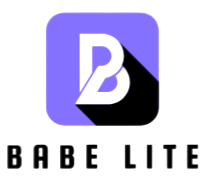Exploring Abacus The New Standard in Darknet Offerings
In the ever-evolving landscape of the darknet, a new player has emerged, capturing attention with its unique approach and a suite of tools designed to revolutionize underground marketplaces. This player, known as Abacus, is positioning itself as the next standard in darknet offerings, blending privacy, sophistication, and a strong ethos of security. The darknet has long been associated with illicit activities, ranging from the sale of illegal goods to the exchange of sensitive information. For years, users have relied on a variety of platforms, each offering varying degrees of anonymity and security. However, Abacus takes this concept a step further, offering advanced cryptographic techniques and a seamless user interface that aims to protect users’ identities while fostering secure transactions. One of the standout features of Abacus is its emphasis on untraceable communications.
By utilizing cutting-edge encryption protocols, it ensures that every transaction, whether it involves cryptocurrency exchanges, file transfers, or communication, is shielded from surveillance. This level of security is a key selling point, especially for users in sensitive industries where privacy is paramount. Another notable feature is Abacus’s decentralized marketplace. Unlike traditional darknet marketplaces, which often suffer from centralized points of failure or the risk of being seized by law enforcement, Abacus link operates through a decentralized network of nodes. This architecture not only enhances its resilience against takedowns but also offers improved fault tolerance. With no single entity controlling the network, users enjoy greater autonomy and less susceptibility to censorship. Furthermore, Abacus has raised the bar in terms of user experience. In a realm often known for its complex and obscure interfaces, the platform’s clean, intuitive design stands out.
Navigating through various offerings, from hacking tools to privacy services, is streamlined and efficient. This accessibility has attracted a more diverse range of users, from seasoned darknet veterans to newcomers seeking anonymity. Despite its promise, Abacus is not without its critics. Some argue that the sophistication of its platform might make it a target for law enforcement agencies, who could work to dismantle the network through advanced technological and legal means. Others worry about the platform’s potential to further normalize illegal activities on the darknet, providing greater access to dangerous tools and information. Nevertheless, as the digital underground continues to evolve, Abacus represents a new era of darknet platforms. With its focus on security, decentralization, and user experience, it is positioning itself as a key player in shaping the future of this hidden part of the internet. Whether it will succeed in setting a new standard remains to be seen, but its impact on the landscape is already undeniable.
